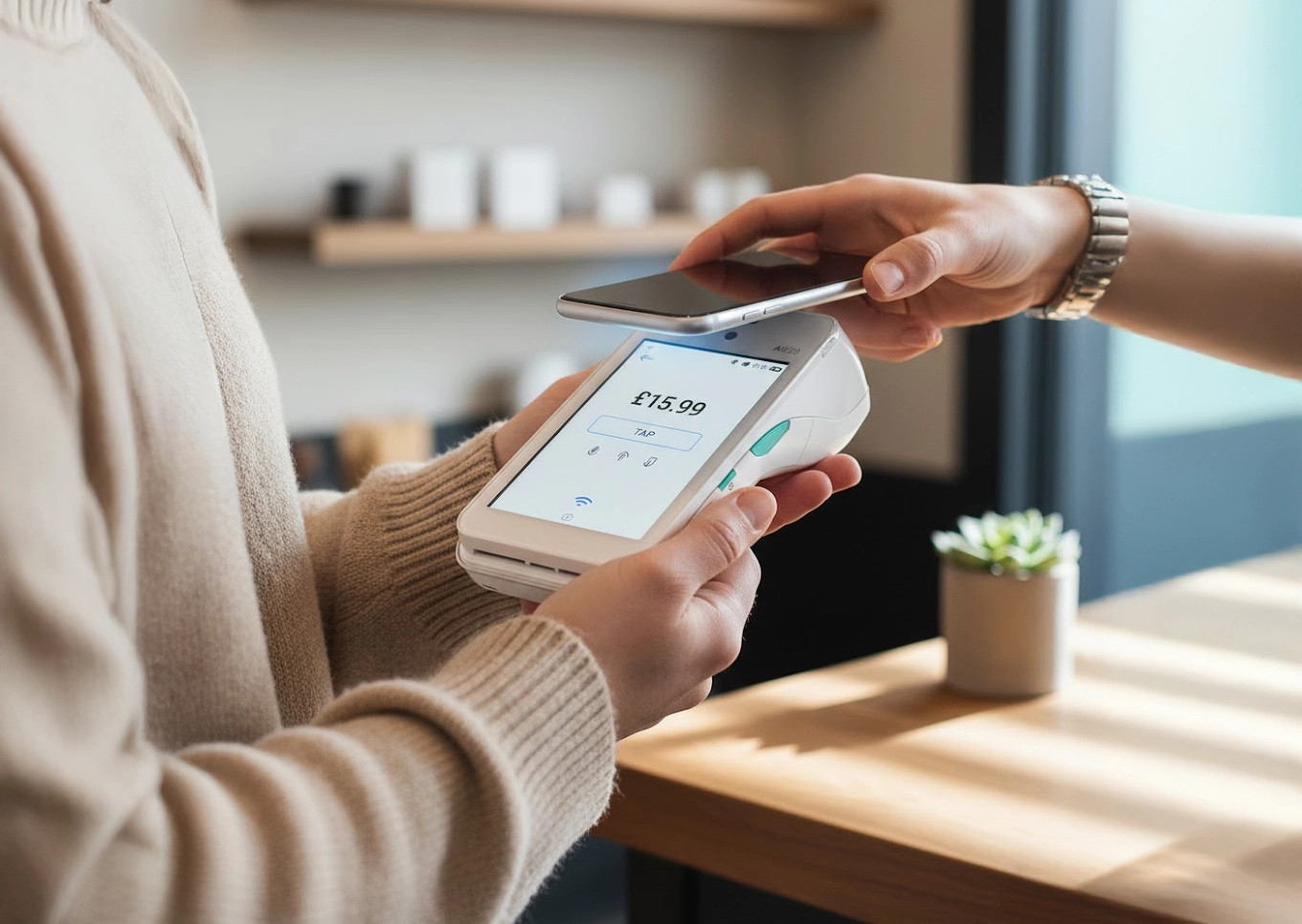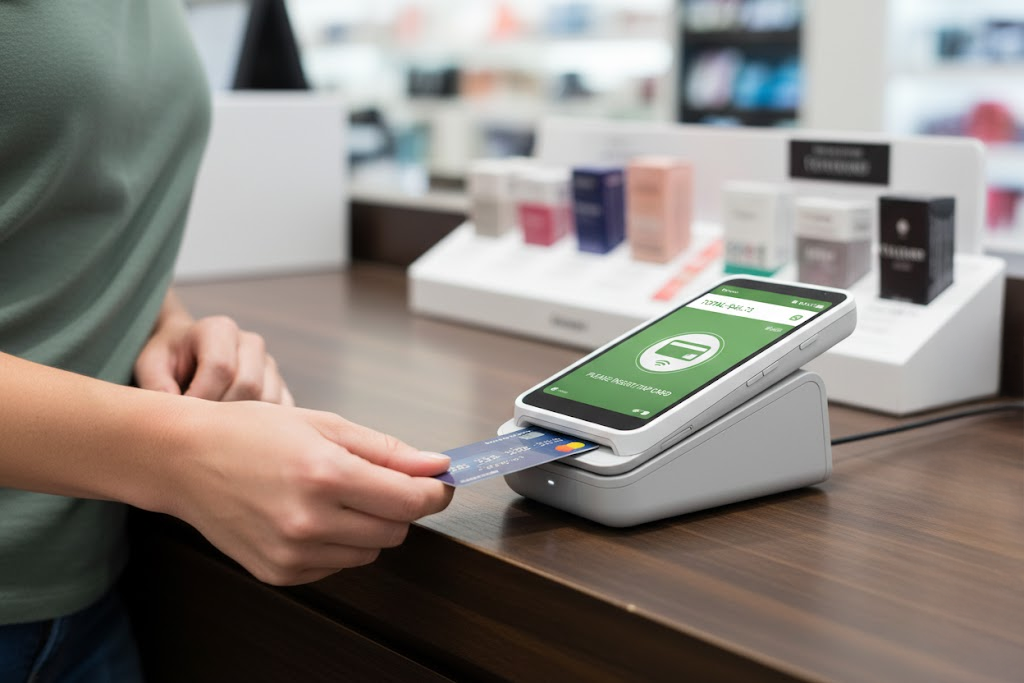
Dojo Card Machine: Independent UK Guide for Businesses
What Is a Dojo Card Machine? A Dojo card machine is a payment terminal supplied as
Get a quote in seconds with our simple form
Last updated 14/10/2025
Direct debit payments offer a simple way to pay for both businesses and consumers. Neither your business nor your customers have to worry about remembering payments, making your income more predictable and your finances easier to manage.
Taking direct debit payments can also increase the predictability of your finances, which can work well for you and your merchant account provider. But what exactly are direct debit payments, and what are the risks associated with them? Keep reading to find out.
You’re probably familiar with what direct debits are from a consumer perspective, or at least you will be if you’ve ever signed up for a subscription service or entered into a lengthy contract. If so, you already know that a direct debit payment is essentially when payments are taken automatically from a customer’s bank account on a set recurring date for a set period of time.
To set up a direct debit, your customer must first authorise the payment to be taken. This occurs when they initially sign up for your service and complete a form that grants your business permission to take recurring payments. Remember, direct debits are different from standing orders, which can be set up independently by anyone with a bank account.
Obviously, given their nature, direct debit payments are popular among businesses that require an ongoing commitment from a customer, like a rolling service or subscription. As well as this, though, they are often favoured by cashless businesses, who find them helpful in both speeding up recurring payments and improving financial predictability.
The main benefit of direct debit payments (which are different to standing orders), for businesses and consumers, is their simplicity. Neither your business nor the customer has to worry about remembering the payment. This means payments aren’t missed and your customers are more easily managed.
As we’ve established, direct debit payments work by automatically taking payments from your customers’ bank accounts, but how do you actually go about setting them up? Well, that’s also a fairly simple process.
Before you can do anything, you first need to make sure your business is eligible to take direct debit payments. This means you need to get a Service User Number (SUN), a six-digit number businesses use to get paid via direct debit. You can get a SUN directly from your bank, provided you meet its criteria. The specific criteria, predictably, vary from bank to bank, but they will usually want to make sure your business is able to provide refunds and keep payment errors to a minimum.
Once you’ve got your SUN, the next step is getting customers to agree to a direct debit. This bit is usually fairly simple, but it’s important to make sure it’s clear what they are opting in for. You don’t want any of your customers to sign up for a direct debit, only to then become confused about what it is they’ve committed to and then come back wanting a refund or cancellation.
Thirdly and finally, and only once your bank and your customers have permitted you to take direct debits, you need to set up the frequency and size of your payment. These payment details are agreed upon between you and your customers, so they are easy to work out.
The most important thing to remember about this part is that your customers must be given 10 days’ notice before each payment is taken. The notice needs to detail when the payment will be taken and how much it will be.
We have in-depth guides that fully explain all you need to know about taking payments. Explore below:
As mentioned above, the most obvious benefit of accepting direct debit payments is the simplicity it brings to the hassle of managing recurring payments. Other benefits include greater predictability, greater retention, and better relationships with your customers.
Having a better idea of how much revenue you’ve got coming in from your customers and knowing exactly when you’ll be receiving it can make your business’s general finances more predictable and manageable. You can also use this information to inform future decisions about your business growth.
Having customers committed to your business on an ongoing basis also means they’re more likely to stick around as they already like what you provide, making the job of your CRM that little bit easier.
With customers already engaged heavily with your business and your brand, they’re right where you want them to develop your relationship with them. You can use their pre-existing interest to market more of your services, offer special discounts or offers, or reward their loyalty with a giveaway. These things will help keep their engagement with your brand nice and high.
One of the reasons that direct debit payments are so popular for businesses is their safety, but this doesn’t mean they’re completely without risks.
The main risk associated with direct debit payments is failed payments. Let’s imagine, for example, that one of your customers changes their card, or doesn’t have enough funds in their account, or maybe they’ve closed the bank account that they signed up with. All of these things will lead to one thing…a failed payment.
While these things don’t really happen when a customer uses their card in your shop, they do sometimes happen with direct debits, which is why you need to be aware of them and, more importantly, need to mitigate against them by either suspending your service immediately or reaching out to your customer.
Direct debit payments offer a simple way for your business to take payment from your customers. They mean neither your business nor your customers have to worry about remembering payments, making your income more predictable and your finances easier to manage.
While they do have a small cost associated with them, and there is the chance of payments failing or otherwise not coming through, these risks can be easily prepared for and mitigated against so, on the whole, taking direct debit payments is a good idea for your business if you provide the kind of product or service that depends on a rolling relationship with your customers.
In most cases, you’ll need a Service User Number (SUN) to collect payments. Banks often only grant SUNs to well-established businesses that already have things like merchant accounts in place.
Alternatively, you can use a third-party provider to handle SUN acquisition and payment collection.
The most obvious benefit of accepting direct debit payments is the simplicity it brings to the hassle of keeping on top of recurring payments.
Other benefits include having greater predictability, greater retention, and better relationships with your customers.

What Is a Dojo Card Machine? A Dojo card machine is a payment terminal supplied as

What Are Stripe Payments? Stripe Payments is a payment processing service provided by Stripe that allows

Your business needs a card machine that’s suited to you and your customers: here’s our breakdown




CommercialExperts.com helps savvy UK businesses to save time and money by comparing a wide range of essential products and services.
© TFLI 2025 All rights reserved. Licenced by the Information Commissioners Office, (Registration Number Z3585914) Registered in the UK, number 08424810. Registered Office Address: First Floor, Beechwood Court, Springwood Way, Tytherington Business Park, Macclesfield, Cheshire. SK10 2XG.